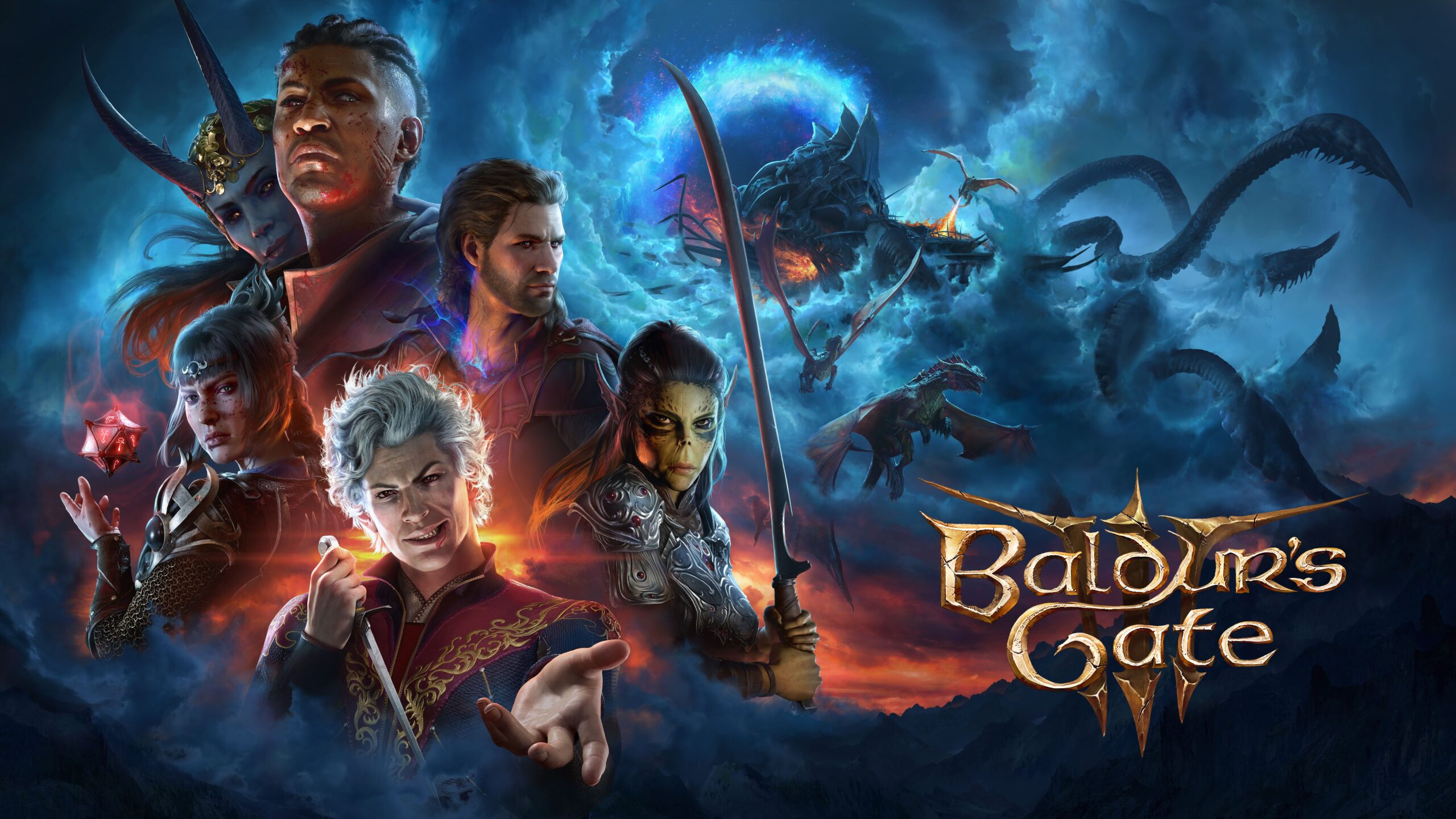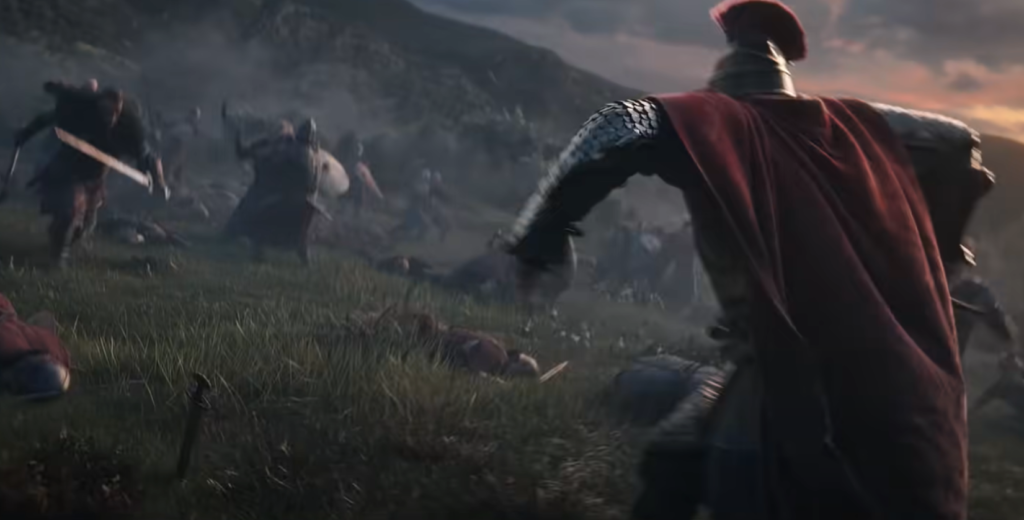
Review: Assassin’s Creed Valhalla Wants to be New, But Hasn’t Learned From Its Past
Ubisoft’s Assassin’s Creed series is somewhat of an anomaly in the games industry. One part history lesson, one part wanton murder spree, it feels like Ken Burns and John Wick decided to make a long running video game series together. The ironic part of this is that with all its emphasis on history, Assassin’s Creed Valhalla doesn’t learn from its series’ lineage, but instead retreads the same old ground of the games before it while wanting to be hailed as the next step in the series.
For all its faults, I adored the previous entry in the series, Assassin’s Creed Odyssey, and completed just about everything there was to do in the base game. So when I started Valhalla, I was disappointed to see that the game started with an incredibly familiar story beat, the death of the protagonist’s family. Of course this is a common trope in storytelling, it’s a quick and easy way to provide motivation for the protagonist, but a family member dies in the opening act of Assassin’s Creed Odyssey too, and Assassin’s Creed Origins, and Assassin’s Creed III, and Assassin’s Creed II. Not only is it a well worn trope of storytelling in general, but it is completely worn out in this series. Unfortunately, that feeling of same-ness that I felt in the opening couple hours would permeate my entire 60+ hour playthrough of Valhalla.
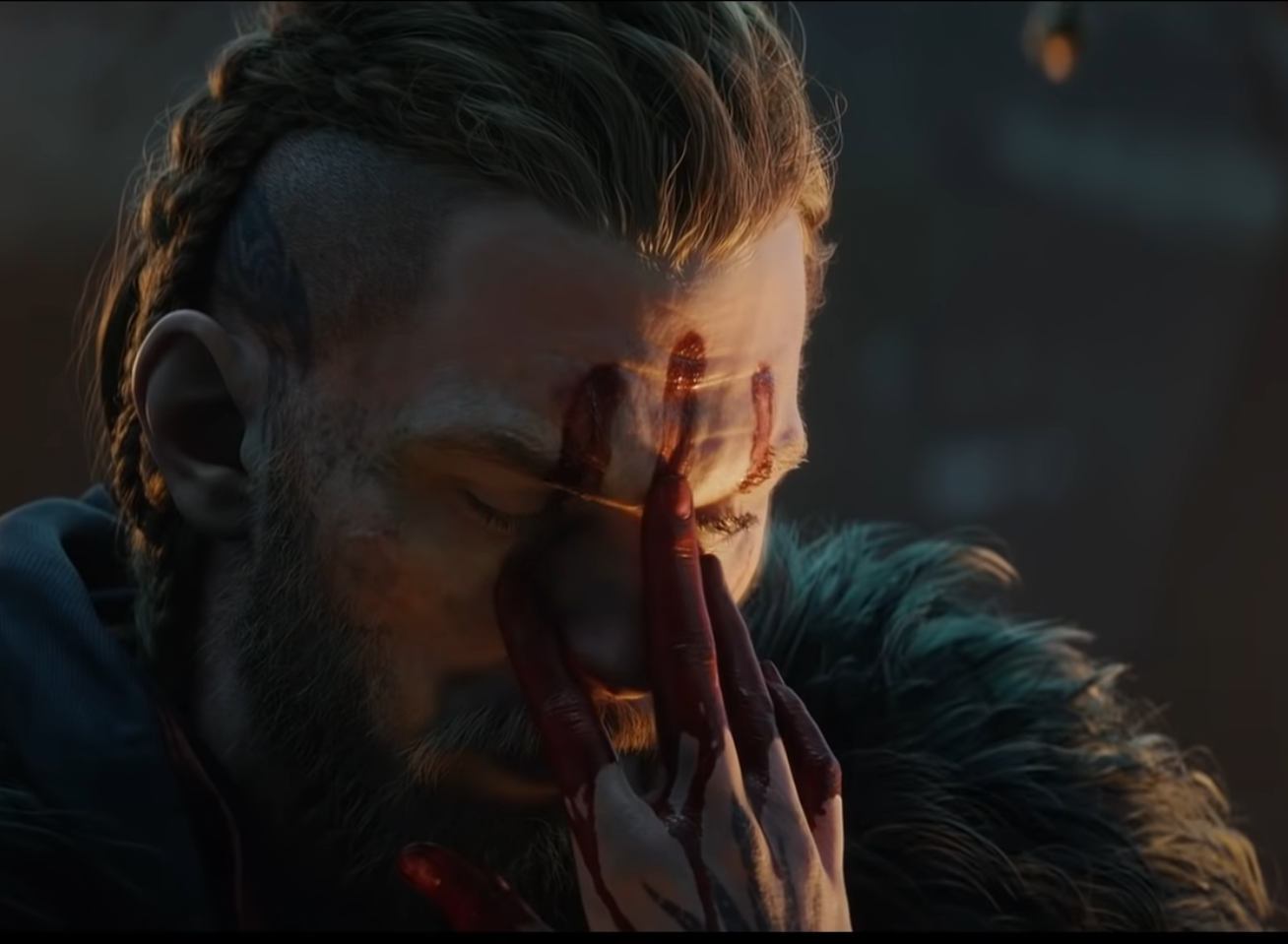
Eivor’s story as they raid and pillage across Norway begins with an all too familiar tone, and the game’s systems continue treading the same mechanical water. Side missions and quests are plentiful in Valhalla, like you would expect in an Ubisoft open world game, but many of them felt like they have been done before.
Chasing after tattoo designs along a platforming course is just the same activity as chasing pirate songs in Assassin’s Creed IV: Black Flag. Identifying and hunting down the “Order of the Ancients” is the same mechanics as hunting them down in Assassin’s Creed Origins or hunting “The Cult of Kosmos” in Odyssey. But while hunting these assassination targets down in Origins or Odyssey was central to the plot and their protagonists’ story, Eivor hunting down the Order of the Ancients in Valhalla feels tacked on, like it was expected by players rather than needed for the game’s central story.
The few new side activities in Valhalla are largely filler, small colored dots to make the map look busy as you look across England for your next objective. Activities like cursed areas and carin stones are a nod to the game’s viking aesthetic and setting of late 800 AD England, but are no more than that: simple flavor to dot the landscape, another box to check off. Another new activity, flyting, is just a rap battle that players can partake in to increase their charisma level, a first for the series. The charisma is underutilized, however, and is only used in a handful of scenarios to pick a different dialogue option when interacting with NPCs. No major story situations that I saw required a certain level of charisma, ultimately making the whole mechanic feel pointless. Flyting is the most unique event in Valhalla and taught me something new about viking culture, but its end result is ultimately underwhelming, and after the first few flyting matches I had little motivation to seek them out and participate.
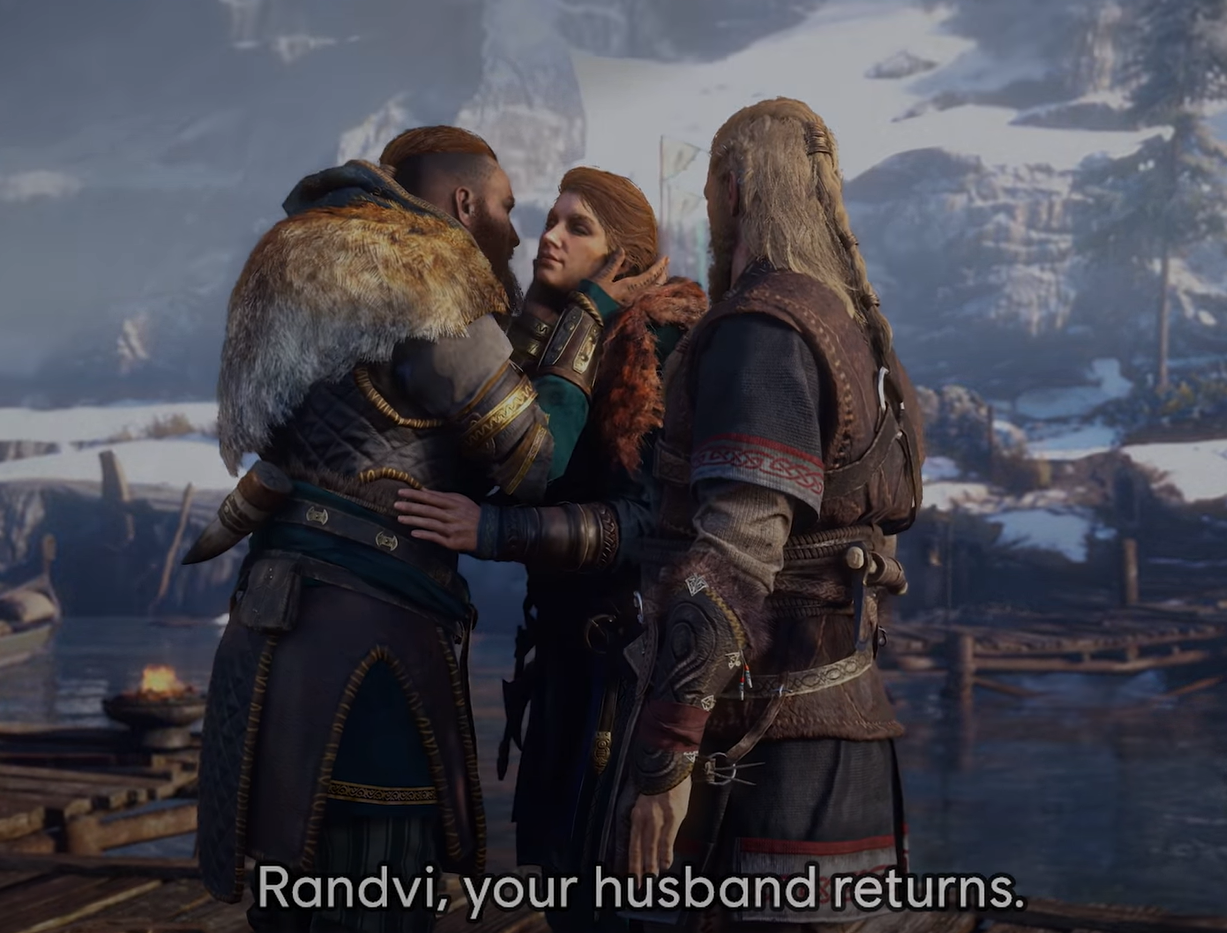
Eivor’s jaunt around England isn’t all just moving from colored dot to colored dot. Their story (you can choose your gender at will and so Eivor has no canon gender) has Eivor traveling England to make alliances with different factions of a divided nation in order to gain allies for Eivor’s Raven Clan for some reason. Shortly after you arrive in England, Eivor takes it upon themselves to travel around and make as many friends as possible in order to protect their small clan in their new home. There is no looming threat to the Raven Clan, it’s just a thing Eivor and your adopted brother/clan leader Sigurd decide Eivor needs to do.
Sigurd, meanwhile, heads off and tries to make an alliance with one group while Eivor simultaneously builds alliances with three or four others. While a very one-dimensional character, Eivor’s effectiveness at recruiting allies proves they are the superior leader here. But Valhalla constantly tries to make you feel bad for doing what Sigurd would not, and that’s simply leading. He spends more time away from your settlement than he does home and leaves Eivor to deal with a couple petty squabbles amongst your settlers, then he comes home and yells at Eivor for stepping in. The game attempts to deal with themes of leadership, destiny, and power but never gets to the point where any of the story beats have any ground to stand on.
Combine the lack of any solid thematic writing and character development with the fact that the main story is about forty hours longer than it needs to be, and Valhalla quickly becomes a drag of a narrative with horrendous pacing issues. The most interesting story beats happen around the twenty and forty hour mark, and then the last forty minutes of the game. The ending spends the entire time trying to wrap this game’s story into the overall Assassin’s Creed universe in an interesting way, but players who aren’t caught up on the lore will likely miss the significance.
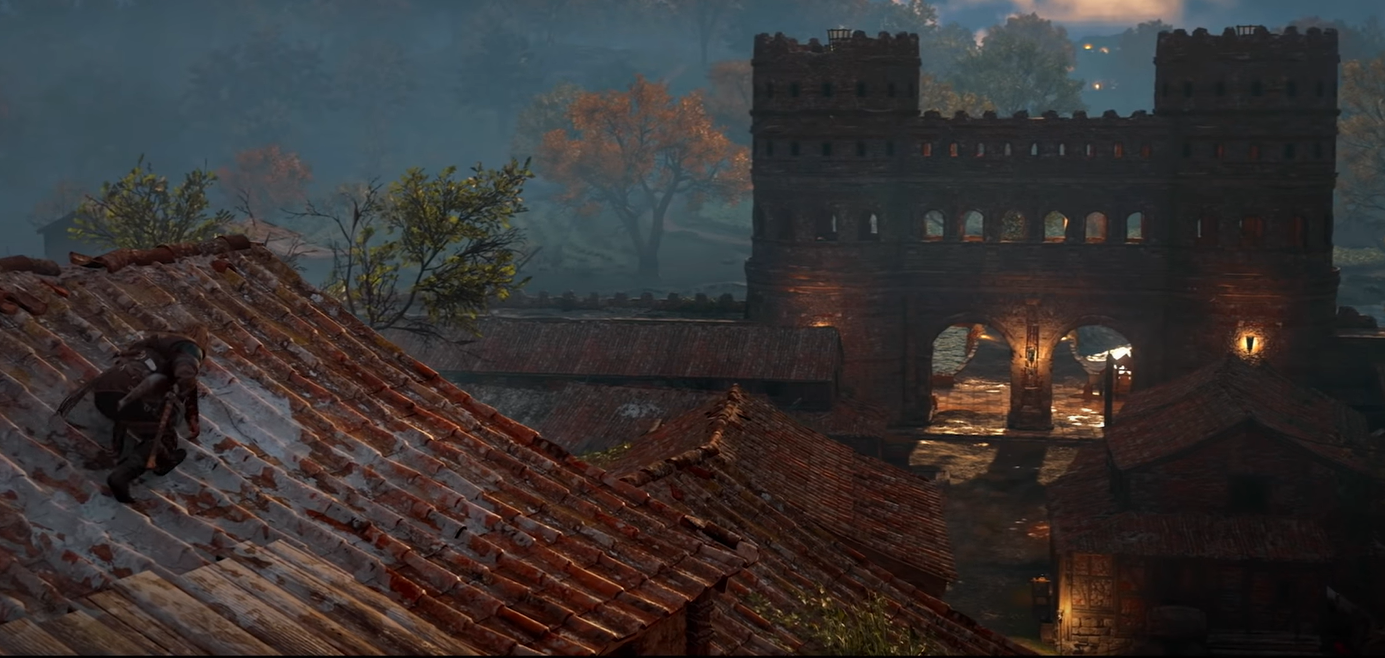
Valhalla spends the rest of the time sending Eivor on largely boring quests full of a cast of characters that are mostly forgettable. Pledging to an area, taking the three or so hours to gain the alliance from that area’s leader, then doing it all over again is a gameplay loop that doesn’t work without an interesting reason for having the loop in the first place, and Valhall ultimately fails to deliver that reason.
Traveling across England on these busy quests isn’t without its own reward though. Valhalla is truly a beautiful game, made even more impressive by next gen systems. Playing on a PS4 Pro for around 45 hours of the game made me truly appreciate how far we had come this generation, but switching over to the Playstation 5 for the end of the game made me excited for where we can go from here. Climbing the frozen mountains of Norway in 4K at 60 FPS with HDR enabled was truly impressive, but the most important jump was load times. Playing the majority of the game on PS4, I spent my fair share on loading screens while fast traveling around the world, with each travel taking around a minute and a half. With the PS5, I was able to travel across the map in less than ten seconds.
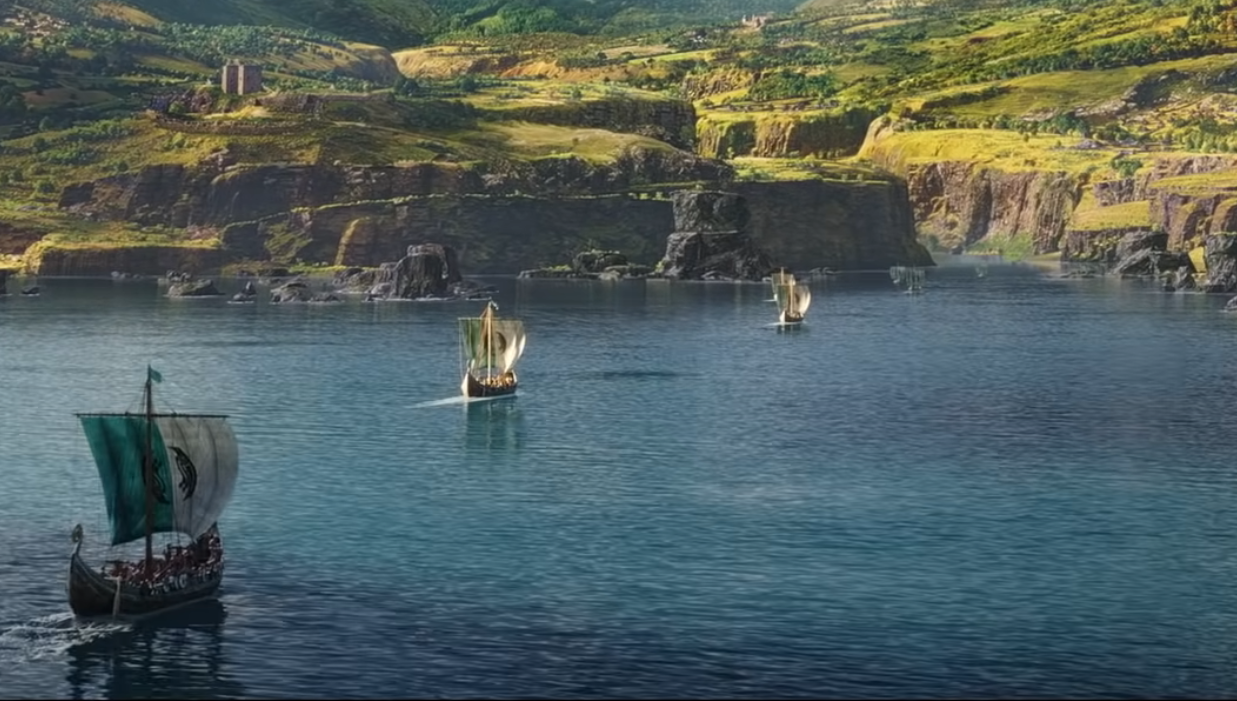
Despite these technically impressive graphics and load times, the game itself still struggled on a base level. Button prompts wouldn’t appear for completing quests (including one instance where it took me fifteen minutes of running around, fast traveling, doing other things, then coming back only for the prompt to finally appear) or for certain actions during raids like looting or opening doors. People complained about The Avengers AI being useless when the game first launched, but Valhalla puts the Hulk to shame with its viking raiders staring at Eivor from across the room while Eivor yells for help opening a chest.
The longship navigation system also stopped my progress several times. Using the auto sail mechanic, my boat would cut a corner on one of the many rivers of England only for my ship to become beached and unmovable. While the solution of getting out, walking down the shore, and summoning my ship again by blowing my very cool war horn wasn’t terribly painful, it happened enough times to the point where I would take the long way to locations by riding my giant wolf across the land.
Assassin’s Creed Valhalla suffers more than it thrives. The recycled systems, flat characters, bloated main story, and meaningless side activities are open world game design at its worst. Ubisoft put the series on hiatus in 2015 after putting out a game nearly every year for eight years and fans and critics complained about how stale the series had gotten. Then in 2017 Ubisoft came back with Origins to critical acclaim, but less than three years later Valhalla makes Assassin’s Creed feel stale again, even with such a triumphant refresh only a few years prior. It’s time for Ubisoft to commit to learning from the series’ past and innovate on it rather than rehash it, because if Valhalla is the new standard for Assassin’s Creed games, then another hiatus and refresh may be on the horizon before long.





